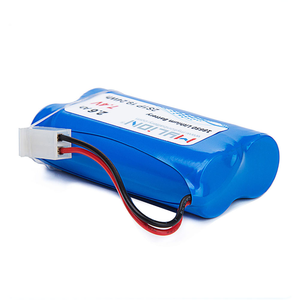Introduction to Lipo Battery Type
The lipo battery type, short for lithium polymer battery, has become a preferred choice in various industries, including remote control vehicles, drones, and portable electronics. Its unique chemistry offers numerous advantages over traditional battery types, such as higher energy density, lighter weight, and flexible shapes.
Understanding the lipo battery type is essential for users looking to maximize performance and efficiency in their electronic devices. This guide will help you delve deeper into the various aspects of lipo batteries and how they can meet your specific needs.
Types of Lipo Battery Type
There are several types of lipo battery types available in the market, each designed to serve different functions and applications. Here are some common types:
- Standard Lipo Batteries: These are the most common types of lipo batteries used in hobbyist devices, drones, and RC cars. They typically come in various cell configurations and capacities.
- Lipo Ion Polymer Batteries: A specialized variant that offers higher energy output and longevity. These batteries are ideal for devices requiring prolonged use.
- High-Drain Lipo Batteries: Specifically engineered to deliver high current outputs. They are perfect for high-performance applications like racing drones and other high-speed vehicles.
- Custom-Shaped Lipo Batteries: Custom options are available for unique designs and fitting requirements, ensuring optimal space efficiency in devices.
Function and Feature of Lipo Battery Type
The lipo battery type is equipped with a variety of features that enhance its application in modern electronics. Understanding these features can empower users to make informed purchasing decisions.
- Lightweight Design: With a low weight-to-capacity ratio, lipo batteries are excellent for devices where weight is a significant concern.
- Flexible Form Factor: Lipo batteries can be manufactured in various shapes and sizes, making them versatile for many devices.
- High Energy Density: These batteries offer a greater amount of energy relative to their weight, ensuring longer usage times.
- Low Self-Discharge Rate: Lipo batteries can maintain charge for extended periods without the significant loss of power.
Applications of Lipo Battery Type
The applications of the lipo battery type are broad, showcasing their versatility in numerous fields. Below are some primary applications:
- Remote Control Vehicles: RC cars, helicopters, and drones often rely on lipo batteries to provide the necessary power and performance.
- Consumer Electronics: Many smartphones, tablets, and laptops utilize lipo batteries for their compact design and efficient power delivery.
- Wearable Technology: Fitness trackers and smartwatches benefit from the lightweight and high-capacity attributes of lipo batteries.
- Electric Vehicles: Lipo batteries serve as a critical component in the development of electric bikes and scooters for their high energy storage capabilities.
Advantages of Using Lipo Battery Type
Choosing a lipo battery type comes with several advantages that set it apart from other battery technologies.
- Extended Battery Life: Lipo batteries can offer longer running times due to their high energy density.
- Versatile Applications: Their adaptability makes them suitable for various devices, from hobbyist toys to cutting-edge technology.
- Enhanced Performance: High-discharge rates allow for more efficient power usage, especially beneficial in performance-demanding applications.
- Low Maintenance: Lipo batteries require minimal maintenance compared to traditional lead-acid batteries, making them user-friendly.






















































